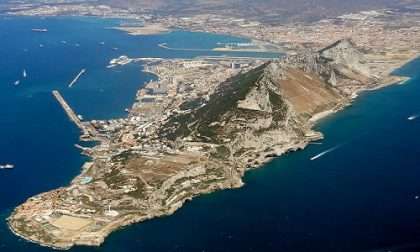Brexit’s Surprise Online-Gambling Loser — It Might be Gibraltar
This week’s surprising and controversial decision by United Kingdom voters to exit from the European Union will have global reverberations. Compared to the global economy as a whole, the online-gambling industry is decidedly small potatoes, yet the observers and pundits are already hard at work, trying to foresee exactly what the post-Brexit world will bring.
 While scenarios already range all over the (literal) map, one of the most intriguing questions from the online-gambling scenario involves the future of Gibraltar, one of the industry’s global hubs. Gibraltar has risen to prominence over the past half dozen or so years, but it’s status as both an overseas territory of the United Kingdom and a specially-designated “economic area” of the EU opens up some intriguing questions.
While scenarios already range all over the (literal) map, one of the most intriguing questions from the online-gambling scenario involves the future of Gibraltar, one of the industry’s global hubs. Gibraltar has risen to prominence over the past half dozen or so years, but it’s status as both an overseas territory of the United Kingdom and a specially-designated “economic area” of the EU opens up some intriguing questions.
Perhaps the largest one: What will happen to the cottage-style online-gambling industry that now accounts for a goodly share of Gibraltar’s GDP? The famed but tiny — in terms of area — protectorate at the mouth of the Mediterranean Sea is officially a British Overseas Territory, even though nearby Spain also claims sovereignty. Together, though, Britain and Spain allowed the entrance of Gibraltar into the EU as a special economic territory owing to a legal case nearly two decades back. And then, speaking of unintended consequences, Gibraltar amended its business laws to create a virtual tax-free corporate haven for firms conducting online business.
The online-gambling industry responded in droves, with dozens of major Euro firms — predominantly British companies — relocating there over the past decade. Today only one truly British betting firm remains in Britain proper, that being Bet365, but the Gibraltar thing may well turn out to be a short-term deal.
It’s not at all for certain that Gibraltar will be allowed to remain in the EU as a special economic area once the United Kingdom leaves. It’s every bit as uncertain that the rest of Europe, more or less meaning the remainder of the EU, would want to allow a UK protectorate to continue flooding the European market with online-gambling services, when the UK itself is pulling out. It makes no sense; with the UK seemingly pulling out of the EU, Gibraltar will be losing its fairy godmother, there to protect it when other countries complain about freely marketed online-gambling services.
On a related tangent, sure, there’s always the very thin chance that Gibraltar could be returned to Spain, but that’s no help to the Gibraltar-based firms, either, since Spain itself is a firewalled country with regard to online-gambling services.
It’s also just worth mentioning that some of the Brexit fallout could affect other special-status territories of the UK, such as Alderney and the Isle of Man, though recently published assertions that IOM-based PokerStars could run into a ton of Brexit-based trouble are, essentially, fiddle-faddle. Stars is already licensed in more global jurisdictions than any other site, and even if troubles were to arise, the site and company (a division of Canada’s Amaya Gaming) would still have one of the same possible solutions as that awaiting all those Gibraltar-house, ex-Brit firms… and that’s to relocate elsewhere.
Where’s the likeliest location, should the UK’s departure make Gibraltar an untenable locale? The odds-on favorite would have to be Malta, which already has EU membership, is part of the special “Schengen Area” within the EU that qualifies for free trade with other EU member countries (and technically, Gibraltar is outside of that), and it already has a robust and growing online-gambling industry of its own. Though there are some issues with Malta, including a sketchy start to its history as an online-gambling regulator, the little island to the south of Italy still stands as the likeliest “next Gibraltar,” once all this Brexit stuff has shaken out.
Check back around the start of 2019 and we’ll know for sure. In the meantime, don’t be surprised if a few of those Gibraltar-based companies pick up stakes and sail off to much more open ports of call.


















COMMENTS